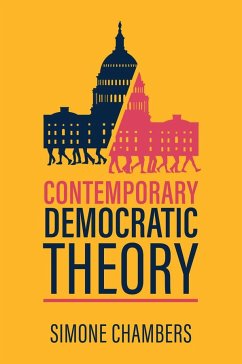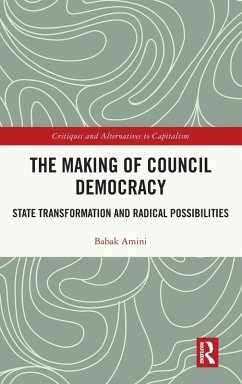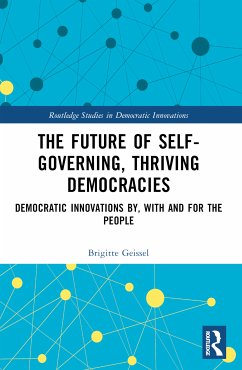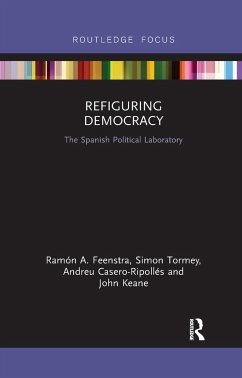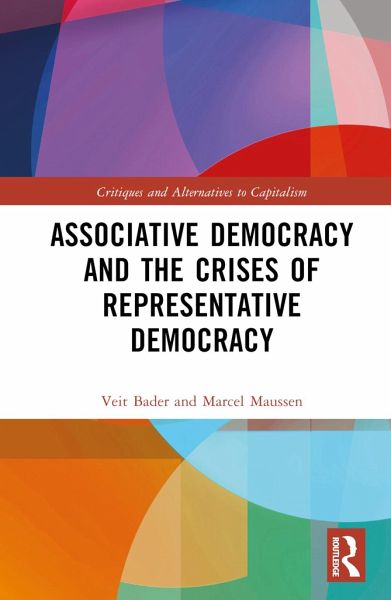
Associative Democracy and the Crises of Representative Democracies
Versandkostenfrei!
Versandfertig in 6-10 Tagen
154,99 €
inkl. MwSt.
Weitere Ausgaben:

PAYBACK Punkte
77 °P sammeln!
The familiar problems of democratic capitalism have given way to a deep crisis challenging the basic forms of governance introduced around the late 18th century and then gradually expanded and developed until the late 20th century. Associative Democracy and the Crises of Representative Democracies argues that we are in urgent need of normative guidelines and a strong understanding of a broad range of institutional options and innovative experiments in associative democracy in order to address the structural problems that existing institutional arrangements are confronted with whilst maintainin...
The familiar problems of democratic capitalism have given way to a deep crisis challenging the basic forms of governance introduced around the late 18th century and then gradually expanded and developed until the late 20th century. Associative Democracy and the Crises of Representative Democracies argues that we are in urgent need of normative guidelines and a strong understanding of a broad range of institutional options and innovative experiments in associative democracy in order to address the structural problems that existing institutional arrangements are confronted with whilst maintaining and strengthening democratic forms of government and governance.
The argument is developed against the background of a thorough survey of empirical social scientific studies on the crises of capitalisms and representative democracies. This book focuses primarily on democratic alternatives, though it also works out principles and institutions of democratic socialism as alternatives to capitalism. After introducing the theoretical approach, the book illustrates the ways this framework of analysis can be of use, with particular focus on three issues that are highly topical when it comes to the challenges our institutions are confronted with: democratic governance in relation to ecological crises and uncertainty; the threats to democracy raised by the crisis of political parties and representative party-democracy, and the challenges related to privatization and marketization of public services, particularly in healthcare. The book concludes by exploring opportunities to democratize the economy, locating viable alternatives to capitalism in the tradition of democratic socialism.
This urgent and thought-provoking book will be of great interest to academics and students in various disciplines in the humanities and social sciences, including political science, sociology, and economics.
The argument is developed against the background of a thorough survey of empirical social scientific studies on the crises of capitalisms and representative democracies. This book focuses primarily on democratic alternatives, though it also works out principles and institutions of democratic socialism as alternatives to capitalism. After introducing the theoretical approach, the book illustrates the ways this framework of analysis can be of use, with particular focus on three issues that are highly topical when it comes to the challenges our institutions are confronted with: democratic governance in relation to ecological crises and uncertainty; the threats to democracy raised by the crisis of political parties and representative party-democracy, and the challenges related to privatization and marketization of public services, particularly in healthcare. The book concludes by exploring opportunities to democratize the economy, locating viable alternatives to capitalism in the tradition of democratic socialism.
This urgent and thought-provoking book will be of great interest to academics and students in various disciplines in the humanities and social sciences, including political science, sociology, and economics.





